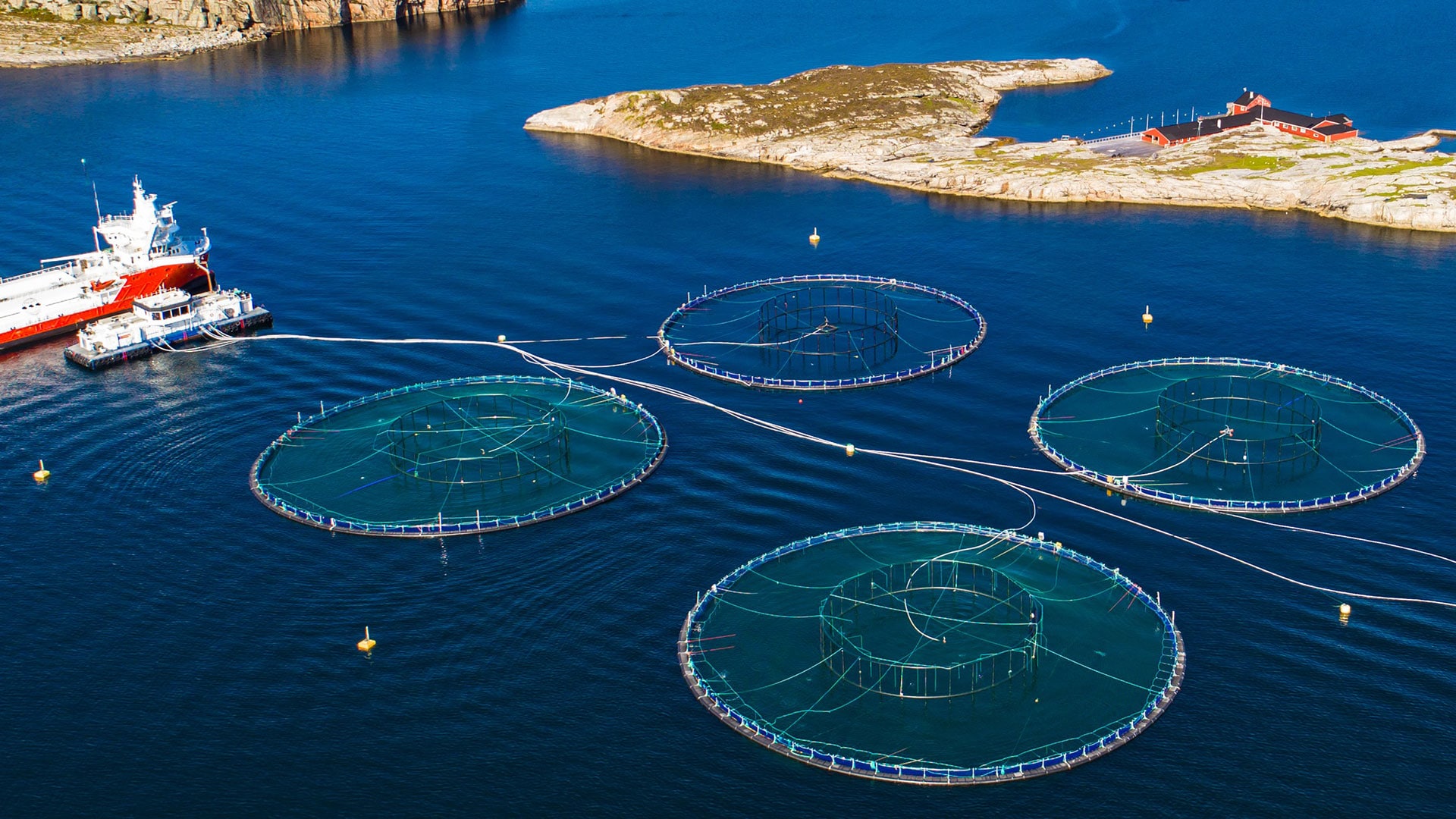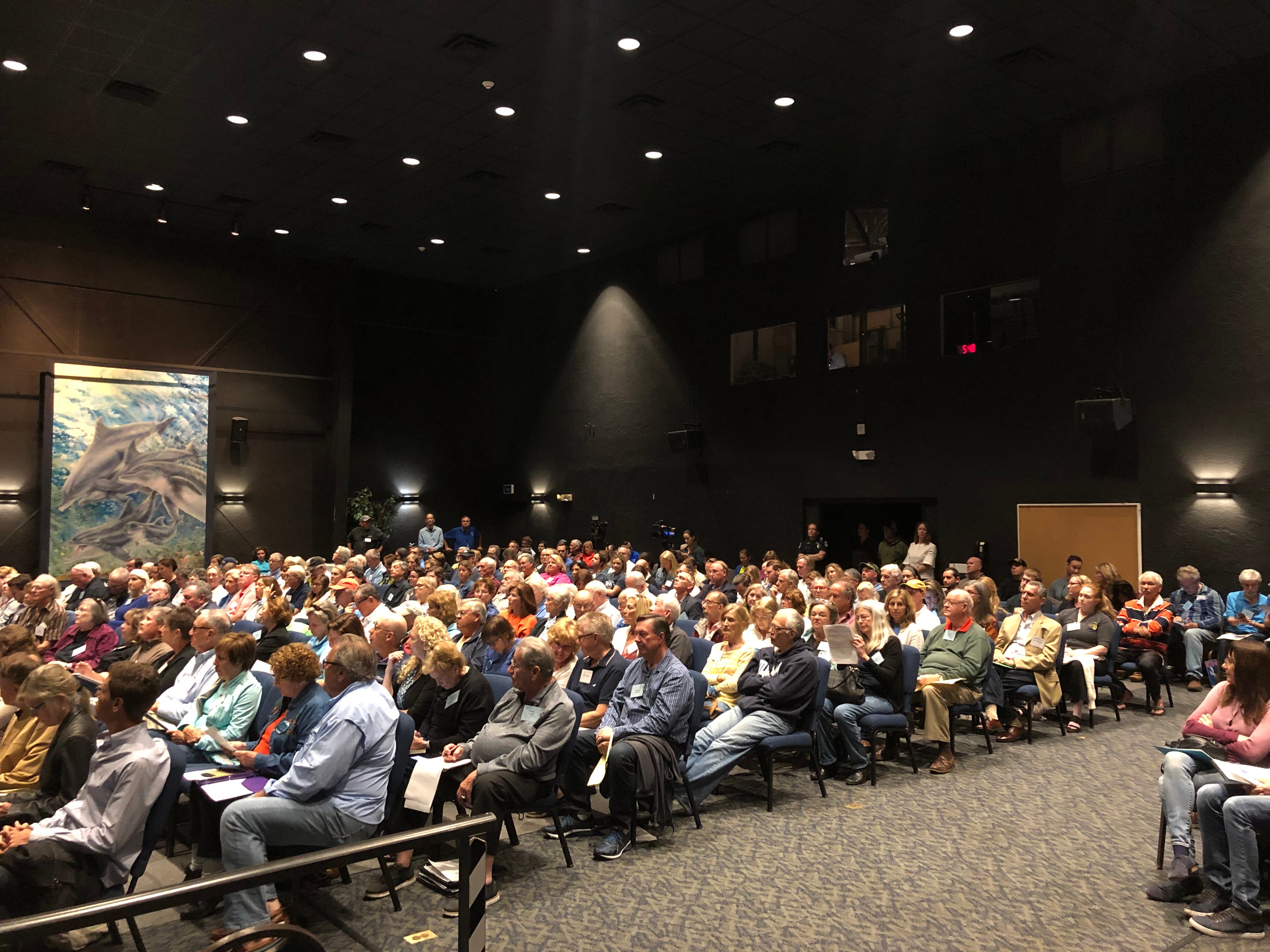- Blog
- Oceans
- Industrial Ocean Fish Farming
- International examples offer US a blueprint for aquaculture regulation in 2020
International examples offer US a blueprint for aquaculture regulation in 2020
by Hallie Templeton, senior oceans campaigner

Donate Now!
Your contribution will benefit Friends of the Earth.
Stay Informed
Thanks for your interest in Friends of the Earth. You can find information about us and get in touch the following ways:
For many years, powerful corporations, assisted by the very U.S. agencies tasked with protecting and managing our ocean resources, have collectively been pushing for development of industrialized fish farms off the coasts of our shoreline communities. Our fisheries managers and other elected officials have done little to mitigate the looming environmental threats of such expansion. In many cases, they have overlooked those threats in an effort to increase opportunities for industrial aquaculture in U.S. waters.
Industrial fish farms, which hold many thousands of fish in giant net pens in the ocean, pump heavily processed feed, antibiotics and other chemicals into our waters. These water-borne factory farms unfairly compete with wild-caught fish at market and harm the ecosystem by allowing pesticides and high concentrations of untreated fish waste to flow from the net pens into our oceans. This is all in addition to the very real threat of industrially-farmed fish escaping these pens and outcompeting wild, native fish for food and mates, as we saw just a few years ago off the coast of Washington state.
Despite these serious risks, the Environmental Protection Agency, Army Corps of Engineers, National Oceanic and Atmospheric Administration and National Marine Fisheries Service are allowing and even supporting development by corporations that push for bills and policies to fast-track these dangerous projects without proper environmental review or public input. Proposed bills like the 2018 Advancing the Quality and Understanding of American Aquaculture (AQUAA) Act would reduce transparency in the permitting process and ignore environmental impacts of new projects. Meanwhile, the federal agencies specifically tasked with protecting our oceans have churned out federal funding assistance to this industry and the Environmental Protection Agency is in the process of granting a Hawaii-based corporation approval to build a massive fish farm off the coast of Sarasota, Fla., all without meaningful public outreach or critical environmental review procedures.
However, momentum is building to stop EPA’s plan. A recent public hearing on the facility garnered a standing-room-only crowd of concerned citizens, decrying environmental risks like increased pollution and feeding the worsening red tide in the region. And in response to EPA’s plan, Florida localities have sensed looming danger from the industry: the cities of Sarasota Sanibel, and Holmes Beach all swiftly moved to formally opposed plans to permit the facility off Florida’s coast.
Our country needs a new approach to smart, sustainable seafood production — one that protects our ecosystems and allows historic fishing businesses to thrive. Where U.S. agencies and legislators have failed, other leaders around the world are successfully curbing industrialization of our oceans and laying the groundwork for a more sustainable future of seafood. It’s time for U.S. leaders to take notice and change course.
On December 13, 2019 — Canadian Prime Minister Justin Trudeau issued a clear mandate to Canada’s Fisheries Minister to end open ocean industrial farming off the coast of British Columbia. The mandate called for a complete transition away from open net-pen farming over the next five years, and for the development of a new Aquaculture Act to preserve biodiversity and protect wild salmon populations as the nation considers land-based farm options, such as sustainable recirculating systems.
Trudeau’s call emphasizes the importance of reviewing the latest scientific research, as well as traditional indigenous knowledge, to develop appropriate regulations. It is time for the United States to follow suit and make environmental analysis and public input a key step in developing these policies.
Our federal lawmakers should seek public input on aquaculture projects that impact local residents and fishing communities, rather than pushing through industrial facilities at the behest of corporations without consideration of the breadth of environmental and economic impacts. In other countries, governments have incorporated public feedback into decision-making, putting an end to the development after considering the impact on the community.
For instance, in Argentina, a 2018 plan to expand finfish aquaculture along the southern coast was met with fierce opposition from environmental advocates, scientists and residents. Famous chefs even joined the movement, showing their preference for the health and quality of sustainably caught seafood. After observing numerous protests, the local government decided to put an end to the project.
Denmark, too, has incorporated the input of environmental advocates and halted the development of new aquaculture facilities. With this announcement, the Danish Environment Minister recognized the major environmental impacts of the chemicals used in such facilities and pointed out that other methods, like land-based farming, can be sustainable when properly scaled and managed.
These are exactly the types of productive solutions that we need from U.S. lawmakers, not the current continued efforts to rubber stamp these dangerous projects. The AQUAA Act or another bill like it would pave the way for the expansion of industrial aquaculture without addressing concerns around environmental and economic impacts. The bill died in committee, but certain members are hoping to resurrect it this Congress. In 2020, we must put an end to efforts to push for open water aquaculture once and for all, and look to the examples of leaders in Canada, Argentina and Denmark for the future of sustainable fishing.
There’s too much at stake for our oceans and our local economies to not take action to protect our marine ecosystems and local communities from industrial finfish farms.
Header image via Wolseley Industrial Group.


